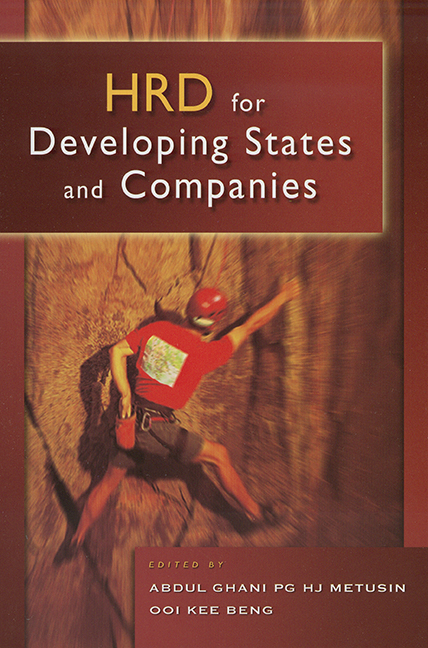Preface
Published online by Cambridge University Press: 21 October 2015
Summary
Brunei Darussalam has a small population and our people are our vital assets in nation building. We wish to develop a modern, diversified and sustainable economy. To achieve this successfully, we need to enhance our human capacity so as to give our families and communities lasting confidence in the future.
At the heart of this vision are our people.
His Majesty the Sultan of Brunei, in a statement made during the APEC High Level Forum on Human Capacity Building for Common Prosperity held in Beijing about four years ago, stressed that due to the rapid advancement of technology and communications, it was important to update constantly the skills of our people and such skills had to be brought to an international level of competitiveness. And for them to prosper in the New Economy, they had to feel that they had a personal stake in its success. The challenge here was obviously the complexity of the skills and knowledge to be absorbed and mastered by our people.
Since then, we have put more focus on developing human resources as a key investment in our economy. It has therefore been given the utmost priority in our National Development Plan. Brunei Darussalam is currently undertaking a consultative study to review and improve on the present state of human resource development policies and programmes. It essentially takes into account the evaluation of educational, academic, vocational, technical and related programmes carried out in the country. What we are aiming at is a comprehensive formulation that best serves the need of human resource development in our country.
We recognize the new demands placed on both the government and the private sector by the sheer speed of modernization, and the human qualities it calls for. These challenges, brought among others by the new competitive reality and by rapid globalization, require new mindsets and competencies, and innovative ways of learning and training.
- Type
- Chapter
- Information
- HRD for Developing States & Companies , pp. x - xiPublisher: ISEAS–Yusof Ishak InstitutePrint publication year: 2005

